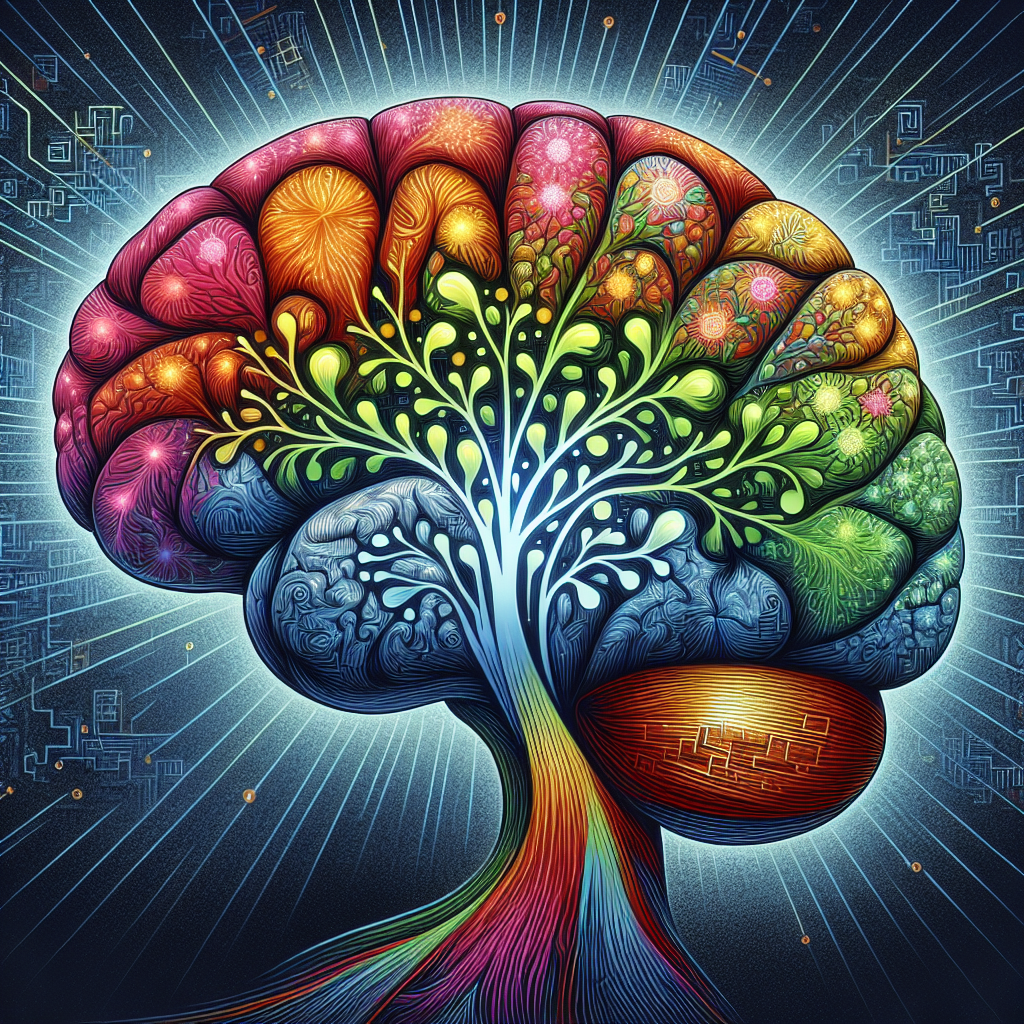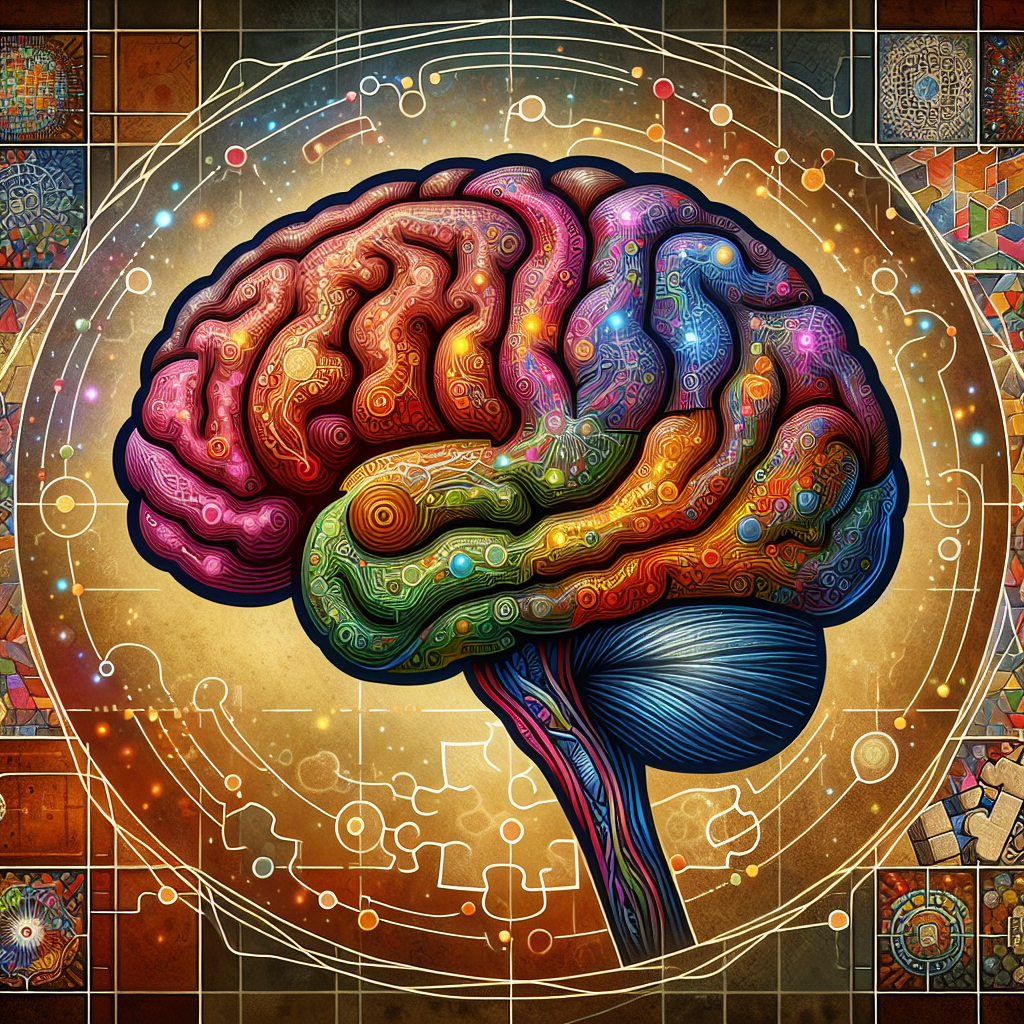How Do Brain Training Exercises Affect Brain Plasticity And Neurogenesis?
Imagine sitting down to a session of puzzles or memory tests that could potentially reshape your brain, enhancing your cognitive flexibility and even spurring the formation of new neurons. This intriguing idea is at the heart of the article “How Do Brain Training Exercises Affect Brain Plasticity And Neurogenesis?” In it, you’ll delve into the fascinating intersection of neuroscience, psychology, and human behavior as it explores the impact of brain training exercises on your brain’s plasticity and neurogenesis. Understand the processes that occur at the cellular level, and learn how these exercises can contribute to your overall mental health, cognitive performance, or even the delay of dementia and other degenerative brain conditions. Buckle up for a journey into the captivating world of brain change.

Understanding Brain Plasticity
The human brain is truly an amazing organ. It has the capacity to learn, adapt and evolve in response to experiences. This outstanding ability to rewire and change itself is known as brain plasticity.
Definition of Brain Plasticity
Brain plasticity, also known as neuroplasticity, is the ability of the brain to reorganize and adapt its functions, to make adjustments in its structure and operations in response to new information, development, and changes in the environment. It shows that the brain is not a static organ but rather a dynamic one, capable of reshaping itself throughout a person’s life.
Mechanisms of Brain Plasticity
Brain plasticity works through two main mechanisms: functional and structural plasticity. Functional plasticity is the brain’s ability to move functions from a damaged area to a different place. Structural plasticity refers to the brain’s tendency to change its physical structure as a result of learning.
Factors Affecting Brain Plasticity
Several factors can affect brain plasticity, including age, stress, and the environment. While plasticity occurs throughout life, it is more robust during childhood. Stress and other negative experiences may limit plasticity, whilst enriched environments can enhance it.
Overview of Neurogenesis
Let’s shift gears a bit and talk about neurogenesis. This is another fascinating aspect of brain health and adaptability.
Definition of Neurogenesis
Neurogenesis is the process by which new neurons, or nerve cells, are created in the brain. This process is most active during prenatal development but continues throughout adulthood, primarily in the hippocampus, which plays a significant role in learning and memory.
Steps in the Neurogenesis Process
Before neurogenesis can occur, a neural stem cell must first divide and differentiate into a neuron. Once this has happened, the neuron then has to survive and integrate into the existing neural circuitry, which involves establishing connections with other neurons.
Areas of the Brain Affected by Neurogenesis
Neurogenesis primarily occurs in the hippocampus and the olfactory bulb, areas of the brain responsible for memory and smell respectively. It is also thought to occur in other regions, although to a lesser extent.
The Concept of Brain Training Exercises
Now that you understand brain plasticity and neurogenesis, let’s delve into the world of brain training exercises.
Types of Brain Training Exercises
Brain training exercises are activities designed to improve cognitive functions. They include memory games, puzzles, reading, physical exercise, musical training, and meditation, among others. Each targets a different aspect of cognition, like memory, attention, and processing speed.
Benefits of Brain Training Exercises
Brain training exercises have multiple potential benefits. They can help in improving memory, attention span, problem-solving skills, and cognitive speed. By consistently challenging the brain, these exercises can help maintain cognitive abilities, especially as we age.
Criticisms and Limitations of Brain Training Exercises
However, brain training isn’t without criticism. Some critics argue that the improvements from these exercises are often task-specific and don’t translate into real-world benefits. Additionally, they suggest that the long-term benefits of these exercises are not well-established and may be over-emphasized by commercial products.

Correlation Between Brain Training and Brain Plasticity
Here’s where things get exciting. Studies suggest that brain training can impact brain plasticity, resulting in tangible improvements in brain health and function.
Research Studies on the Impact of Brain Training on Brain Plasticity
Several research studies have indicated that brain training exercises can lead to changes in brain structure and function, demonstrating brain plasticity. For instance, juggling has been shown to increase grey matter in the brain, while memory training can enhance connectivity in the brain’s memory circuits.
How Brain Training Exercises Enhance Brain Plasticity
Brain training exercises enhance brain plasticity by stimulating the brain and creating new neural pathways. This adaptation process can help to compensate for age-related cognitive decline or to recover functions lost due to brain injury.
Potential Limitations of the Impact of Brain Training on Brain Plasticity
However, it’s essential to acknowledge limitations. The impact of brain training can be influenced by numerous factors, such as age and the type of exercise, and its effectiveness may vary across individuals. Moreover, it is still unclear how long these changes last without ongoing training.
Effects of Brain Training on Neurogenesis
Now, if brain training can trigger brain plasticity, could it also initiate or enhance neurogenesis?
Research Studies on Brain Training and Neurogenesis
Research suggests that certain brain training exercises might indeed stimulate neurogenesis. For example, exercise and intellectual stimulation have been associated with increased neurogenesis in animals and humans.
How Brain Training Exercises Promote Neurogenesis
These exercises likely promote neurogenesis by creating a more enriched environment for the brain, boosting mental stimulation, which in turn encourages the formation of new neurons.
Limitations in Understanding the Effect of Brain Training on Neurogenesis
Despite promising results, there are still many unknowns. It isn’t entirely clear how these new neurons function within the brain’s existing circuitry, and whether they truly improve cognitive function. Further research is needed to fully understand the implications.
Specific Brain Training Exercises and their Impact on Brain Plasticity and Neurogenesis
So, which specific exercises have been shown to have impacts on brain plasticity and neurogenesis?
Memory Training and its Influence on Brain Plasticity and Neurogenesis
Memory training has been shown to stimulate both brain plasticity and neurogenesis. Brain regions responsible for memory can be strengthened and neural connections improved, resulting in better memory performance.
Mindfulness and Meditation Impact
Studies suggest that meditation and mindfulness can also physically alter the brain’s structure, leading to enhanced attention, emotional control and flexibility, indicating the influence of these practices on brain plasticity.
Physical Exercise and its Effects on the Brain
Physical exercise might be one of the most effective brain training exercises. It not only stimulates the growth of new brain cells but also promotes the survival of existing neurons, enhancing both neurogenesis and brain plasticity.
Demographic Factors in Brain Training
Interestingly, demographic factors such as age and gender can also influence brain training outcomes.
Age Factor in Plasticity and Neurogenesis
Age is one of the most critical factors affecting both plasticity and neurogenesis. While the brain retains its ability to change throughout life, this capacity is more robust in children and declines with age. Therefore, brain training might have different effects across life stages.
Gender Differences in Brain Training
Emerging research suggests that there might be gender differences in brain training response, although more research is required to understand these differences fully.
Impact of Lifelong Learning on Brain Health
Lastly, lifelong learning – keeping the brain active and challenged throughout life – could play a significant role in maintaining cognitive health and promoting plasticity and neurogenesis.
Possible Adverse Effects of Overindulgence in Brain Training
Like with anything, too much of a good thing could potentially lead to adverse effects.
Understanding Cognitive Overload
Overdoing brain training exercises could lead to cognitive overload, where the brain is overwhelmed with information. This can lead to decreased performance, stress, and burnout.
Potential Risks of Too Much Brain Training
Moreover, obsessively focusing on cognitive enhancement could lead to neglect of other important aspects of life, like social connections and physical health.
Learning to Balance Brain Training
Therefore, it’s essential to approach brain training with balance and moderation. It should be a component of a holistic lifestyle that also prioritizes sleep, nutrition, social relationships, and physical activity.
Future Research in Brain Training and its Effects on Brain Plasticity and Neurogenesis
The field of brain training and its impact on brain health is still young and full of potential avenues for further research.
Looking at Unanswered Questions
Crucial questions remain, like understanding the long-term effects of brain training, determining its role in treating brain disorders, and identifying which exercises are most effective.
Potential Avenues for Future Studies
Further studies could explore additional demographic variables, surgical techniques, and technological devices that could enhance brain training methods.
The Significance of Continued Research
Continued research in this area is vital because it could lead to strategies to maintain and enhance cognitive function, especially as we age, and possibly lead to treatment options for brain disorders.
Conclusion: The Role of Brain Training in Brain Organism Optimisation
We’ve covered a lot, so let’s summarize what we’ve learned.
Key Findings
Brain training exercises could enhance brain plasticity and stimulate neurogenesis. However, they must be practiced sensibly to avoid cognitive overload.
Implications for Brain Health across Life Span
This suggests that brain training exercises could play a vital role in maintaining and improving cognitive abilities across the lifespan.
Suggestions for Individual Brain Training Regimens
For the best results, choose a variety of exercises that you enjoy and can regularly commit to. This, along with a balanced lifestyle, could help you on your journey towards optimal brain health. Fantastic, isn’t it? The power to shape your brain health lies in your hands!

